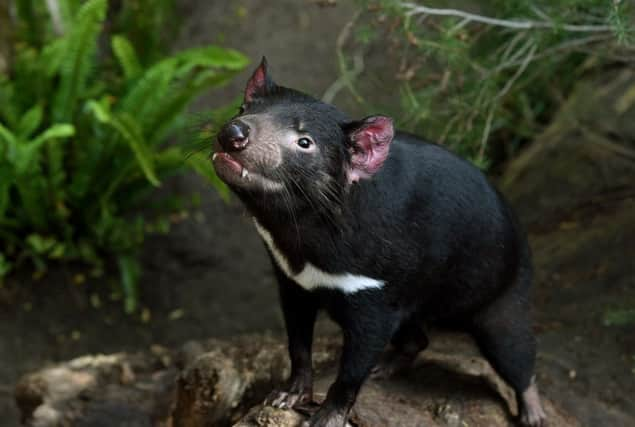Human cancer drugs could save Tasmanian devils from extinction


Two transmissible strains of the fatal disease – which cause facial tumours that can eventually destroy the jaw – have spread among the marsupials and led to a significant decline in populations.
However, drugs developed for human cancers were able to stop the growth of devil cancer cells in a lab, researchers from the University of Cambridge found.
Advertisement
Hide AdAdvertisement
Hide AdThe study, published in journal Cancer Cell, has raised hopes of developing a treatment to save the animals.
Dr Elizabeth Murchison, from the university’s department of veterinary medicine, said: “The story of Tasmanian devils in recent years has been a very concerning one.
“This study gives us optimism that anti-cancer drugs that are already in use in humans may offer a chance to assist with conservation efforts for this iconic animal.”
Tasmanian devils and dogs are the only mammals affected by these rare transmissible cancers.
The first strain, devil facial tumour one (DFT1), occurred in a single animal decades ago and was observed for the first time in 1996, but has since spread throughout the island of Tasmania.
A second strain, devil facial tumour two (DFT2), was discovered in 2014 and is currently confined to a peninsula in the south-east.
While the two are biologically different, they are visibly similar and both are thought to be passed between animals through the transfer of living cancer cells when they bite each other during fights.
A research team led by Dr Murchison analysed the profiles of the two strains and found that molecules known as receptor tyrosine kinases (RTKs) played an important role in sustaining the growth and survival of both DFT cancers.
Advertisement
Hide AdAdvertisement
Hide AdDrugs targeting RTKs have already been developed for human cancer and were found to efficiently stop the growth of devil cancer cells in a lab setting.
The researchers also suggested the transmissible cancers arise naturally in Tasmanian devils.